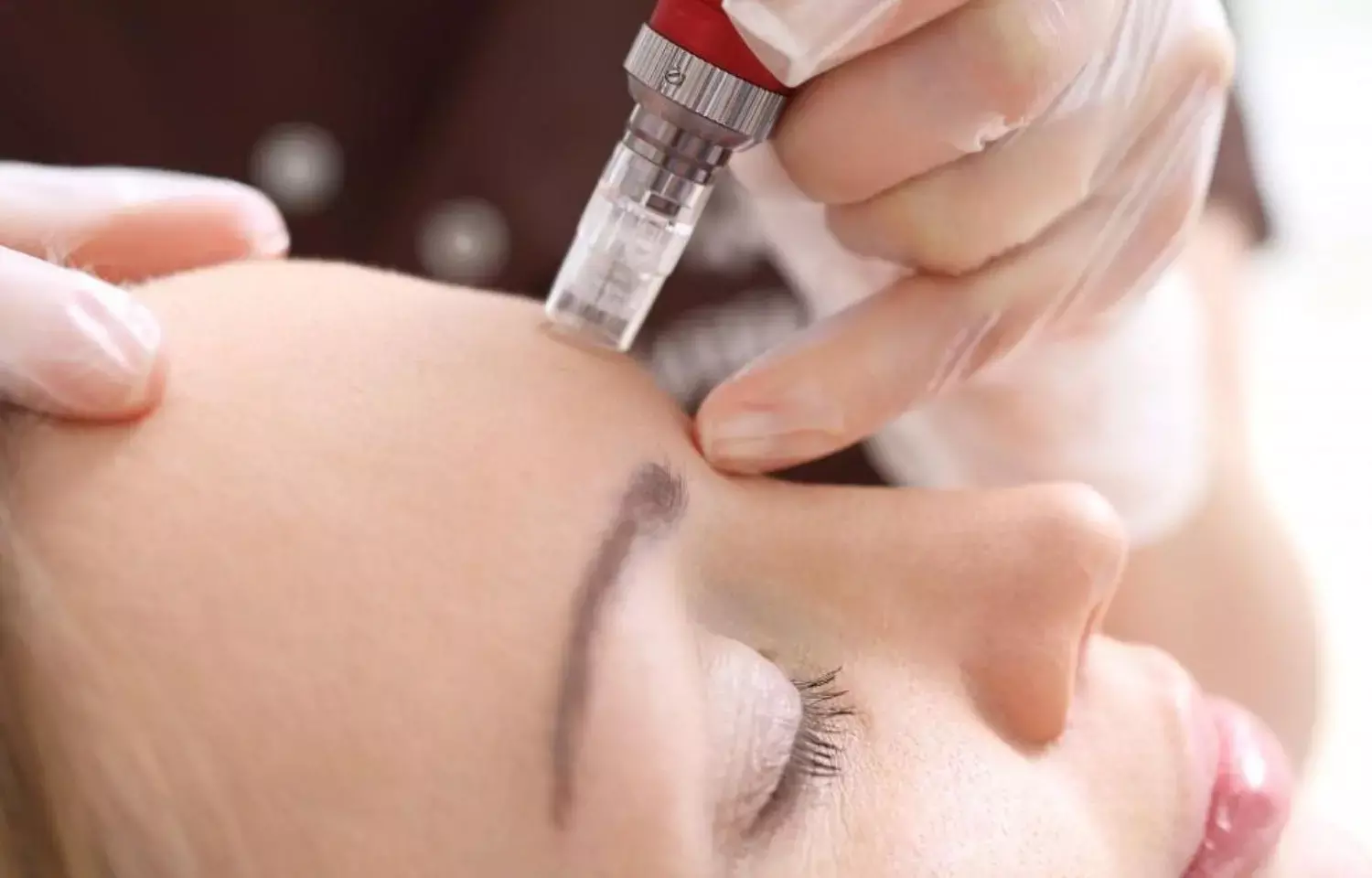- Home
- Medical news & Guidelines
- Anesthesiology
- Cardiology and CTVS
- Critical Care
- Dentistry
- Dermatology
- Diabetes and Endocrinology
- ENT
- Gastroenterology
- Medicine
- Nephrology
- Neurology
- Obstretics-Gynaecology
- Oncology
- Ophthalmology
- Orthopaedics
- Pediatrics-Neonatology
- Psychiatry
- Pulmonology
- Radiology
- Surgery
- Urology
- Laboratory Medicine
- Diet
- Nursing
- Paramedical
- Physiotherapy
- Health news
- Fact Check
- Bone Health Fact Check
- Brain Health Fact Check
- Cancer Related Fact Check
- Child Care Fact Check
- Dental and oral health fact check
- Diabetes and metabolic health fact check
- Diet and Nutrition Fact Check
- Eye and ENT Care Fact Check
- Fitness fact check
- Gut health fact check
- Heart health fact check
- Kidney health fact check
- Medical education fact check
- Men's health fact check
- Respiratory fact check
- Skin and hair care fact check
- Vaccine and Immunization fact check
- Women's health fact check
- AYUSH
- State News
- Andaman and Nicobar Islands
- Andhra Pradesh
- Arunachal Pradesh
- Assam
- Bihar
- Chandigarh
- Chattisgarh
- Dadra and Nagar Haveli
- Daman and Diu
- Delhi
- Goa
- Gujarat
- Haryana
- Himachal Pradesh
- Jammu & Kashmir
- Jharkhand
- Karnataka
- Kerala
- Ladakh
- Lakshadweep
- Madhya Pradesh
- Maharashtra
- Manipur
- Meghalaya
- Mizoram
- Nagaland
- Odisha
- Puducherry
- Punjab
- Rajasthan
- Sikkim
- Tamil Nadu
- Telangana
- Tripura
- Uttar Pradesh
- Uttrakhand
- West Bengal
- Medical Education
- Industry
Novel microneedling technique reduces facial oiliness and scars in acne subjects, study claims

Thailand: Fractional microneedling radiofrequency (FMR) resulted in a significant decrease in facial oiliness and volume of acne scars, according to a new study in the Journal of Cosmetic Dermatology.
The researchers observed a significant decrease in facial oiliness and acne scars' volume after a single treatment session with Fractora 24-pin coated tip, with up to a 15.48% decrease in facial oil production. This implies that the novel technique can be used as an alternative for patients with acne scars, who wish to concomitantly reduce their facial oiliness.
Various treatment modalities including non-invasive methods such as topical retinoids, chemical peels, microdermabrasion, minimally invasive techniques such as fractional lasers, micro-needling, and microneedling radiofrequency devices, and invasive procedures such as acne scar surgeries and ablative lasers are used for acne scars. Each procedure has its own unique advantages and disadvantages.
Fractional microneedling radiofrequency, because of its favorable outcomes and short downtimes, has gained popularity for the treatment of acne scars. Punyaphat Sirithanabadeekul, Chulabhorn International College of Medicine, Thammasat University, Pathum Thani, Thailand, and colleagues, therefore, aimed to investigate the use of FMR in reducing facial sebum production and treating acne scars in a single-center, prospective, evaluator-blinded trial.
For this purpose, the researchers compared sebum production after three sessions of FMR (Fractora® 24-pin coated tip) performed one month apart. Evaluation of the results was done with a sebumeter (Cutometer, Germany), sebaceous gland histology, and subjects' assessment.
Acne scars were graded in accordance with the Echelle d'Evaluation clinique des Cicatrices d'acné scale, Goodman and Baron's qualitative grading system, acne scar volume measurement, and subjects' assessments.
Based on the study, the researchers reported the following:
- Sebumeter results revealed a significantly decreased sebum production since the first treatment, sustained throughout the study period.
- The histological assessment showed decreased density and size of sebaceous glands.
- The mean acne scar volume decreased significantly, without a significant increase in the mean melanin levels.
The researchers conclude, "Fractora 24-pin coated tip can be used as an alternative for patients with acne scars, who wish to concomitantly reduce their facial oiliness"
"We also observed a significant decrease in facial oiliness and acne scars' volume after a single treatment session, with up to 15.48% decrease in facial oil production," they wrote.
Citation -- doi:10.1111/jocd.15137
Dr Kamal Kant Kohli-MBBS, DTCD- a chest specialist with more than 30 years of practice and a flair for writing clinical articles, Dr Kamal Kant Kohli joined Medical Dialogues as a Chief Editor of Medical News. Besides writing articles, as an editor, he proofreads and verifies all the medical content published on Medical Dialogues including those coming from journals, studies,medical conferences,guidelines etc. Email: drkohli@medicaldialogues.in. Contact no. 011-43720751


